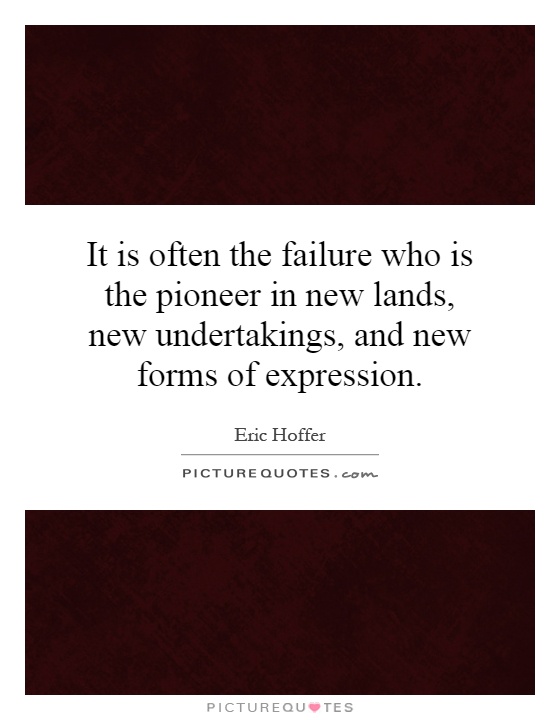It is often the failure who is the pioneer in new lands, new undertakings, and new forms of expression

It is often the failure who is the pioneer in new lands, new undertakings, and new forms of expression
Eric Hoffer, a renowned American philosopher and author, once said, "It is often the failure who is the pioneer in new lands, new undertakings, and new forms of expression." This statement holds a profound truth that is evident throughout history and in various aspects of life.One of the reasons why failures often become pioneers is because they are not afraid to take risks and try new things. They have already experienced setbacks and disappointments, so they are more willing to step out of their comfort zones and explore uncharted territories. This willingness to take risks and embrace uncertainty is what often leads them to discover new lands, undertake new challenges, and create new forms of expression.
Moreover, failures are often driven by a strong sense of determination and resilience. They have faced adversity and setbacks, but instead of giving up, they use these experiences as fuel to propel them forward. This resilience allows them to persevere in the face of obstacles and setbacks, ultimately leading them to success in their endeavors.
Additionally, failures often possess a unique perspective and creativity that allows them to see things differently than others. They are not bound by conventional thinking or societal norms, which enables them to think outside the box and come up with innovative ideas and solutions. This creativity and willingness to think differently are what enable them to pioneer new lands, undertakings, and forms of expression.
One of the most famous examples of a failure turned pioneer is Thomas Edison. Edison experienced numerous failures and setbacks before finally inventing the light bulb. His perseverance, creativity, and willingness to take risks ultimately led him to success and revolutionized the way we live today.












 Friendship Quotes
Friendship Quotes Love Quotes
Love Quotes Life Quotes
Life Quotes Funny Quotes
Funny Quotes Motivational Quotes
Motivational Quotes Inspirational Quotes
Inspirational Quotes